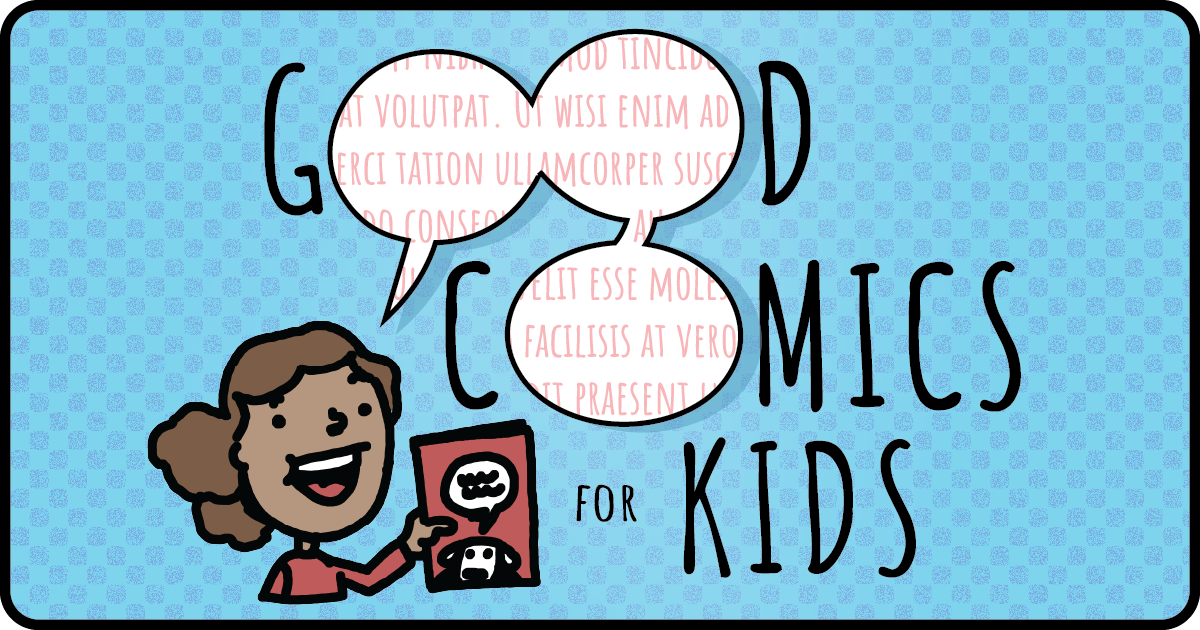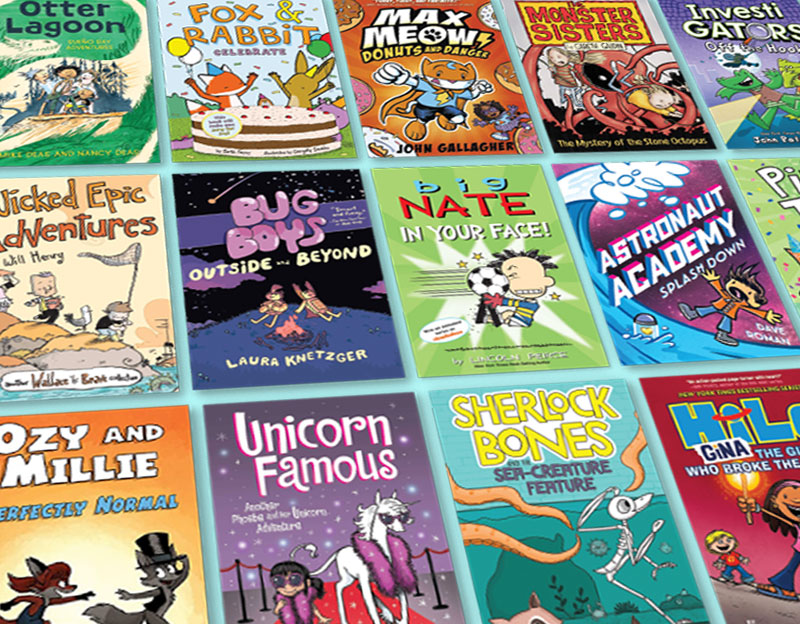Review: Bunny Drop, vol. 1-2
Thirty-year-old Daikichi is a bachelor who lives an ordinary life. But that life changes drastically when he returns home for his grandfather’s funeral. It seems that his grandfather had a young lover no one knew about. The woman is nowhere to be found, but she left behind a child. Rin is a quiet little girl who is drawn to Daikichi. When no one else in the family will assume responsibility, he spontaneously decides to take her in. Now his life is more chaotic as he learns the ins and outs of being a parent, but somehow being with Rin makes it all worth it.
Bunny Drop, vol. 1-2
Yumi Unita
Publisher’s Age Rating: T/Teen (Language; Sexual Situations); Good Comics for Kids Rating: Ages 13+, Grades 7+
Yen Press
Volume One: March 2010, ISBN 978-0-7595-3122-2, 208 pages, $12.99
Volume Two: September 2010, ISBN 978-0-7595-3119-2, 208 pages, $12.99
ADVERTISEMENT
ADVERTISEMENT
 Unita’s work won’t tell grown women anything they don’t already know: raising a family is a lot of work, especially when you’re a single parent. But that doesn’t mean that this sweet story isn’t worth reading or that it won’t be of interest to teen readers. It’s always touching to see a guy–especially one with a number of rough edges–brought low by the powers of one little child, especially a precocious and adorable one like Rin. Daikichi doesn’t try to be anything other than himself. He’s not good with the ladies; he doesn’t spend all of his time partying; he lives an ordinary life between work and time at home. When he discovers that his grandfather fathered a love child, he’s proud of the old man for still being “in the game,” so to speak. But he also can’t help but be moved by the serious demeanor of his newly discovered aunt. His decision to take her in says a lot about his character, especially how he feels about fair play and how to treat others. Glimpses of him at work help build a picture of him that is more than simply the slacker bachelor he believes himself to be. Rin, for her part, is also fairly ordinary, even if she is rather quiet. She gets afraid, worries, makes friends, plays, all the normal childhood reactions. As she begins to build a life with Daikichi, her happiness with him is evident. Daikichi’s support allows Rin to begin to blossom into the person she is meant to be.
Unita’s work won’t tell grown women anything they don’t already know: raising a family is a lot of work, especially when you’re a single parent. But that doesn’t mean that this sweet story isn’t worth reading or that it won’t be of interest to teen readers. It’s always touching to see a guy–especially one with a number of rough edges–brought low by the powers of one little child, especially a precocious and adorable one like Rin. Daikichi doesn’t try to be anything other than himself. He’s not good with the ladies; he doesn’t spend all of his time partying; he lives an ordinary life between work and time at home. When he discovers that his grandfather fathered a love child, he’s proud of the old man for still being “in the game,” so to speak. But he also can’t help but be moved by the serious demeanor of his newly discovered aunt. His decision to take her in says a lot about his character, especially how he feels about fair play and how to treat others. Glimpses of him at work help build a picture of him that is more than simply the slacker bachelor he believes himself to be. Rin, for her part, is also fairly ordinary, even if she is rather quiet. She gets afraid, worries, makes friends, plays, all the normal childhood reactions. As she begins to build a life with Daikichi, her happiness with him is evident. Daikichi’s support allows Rin to begin to blossom into the person she is meant to be.
 Unita draws Daikichi as a rather sour-faced fellow, which makes his dealing with the pretty little Rin even more touching. He’s not the kind of guy who gets all the girls, so he’s easier for readers to identify with. Unita is skilled at drawing figures. Rin is very realistic looking, without the over-sized head that some manga artists like to give to small children. Also missing are the giant, overly detailed eyes. Though it is clear that Unita is drawing comics, she still makes everyone look like ordinary human beings. She’s skilled at comedic pacing, perfect for a story with a lot of humorous moments. One page in volume one where a mysterious wet spot is discovered on one of the sleeping futons, is almost wordless, but shows us just how effective movement lines can be at portraying emotion.
Unita draws Daikichi as a rather sour-faced fellow, which makes his dealing with the pretty little Rin even more touching. He’s not the kind of guy who gets all the girls, so he’s easier for readers to identify with. Unita is skilled at drawing figures. Rin is very realistic looking, without the over-sized head that some manga artists like to give to small children. Also missing are the giant, overly detailed eyes. Though it is clear that Unita is drawing comics, she still makes everyone look like ordinary human beings. She’s skilled at comedic pacing, perfect for a story with a lot of humorous moments. One page in volume one where a mysterious wet spot is discovered on one of the sleeping futons, is almost wordless, but shows us just how effective movement lines can be at portraying emotion.
Over the course of the two volumes, Daikichi begins to look into Rin’s life with his grandfather. As he searches for her birth mother, he digs up more questions than answers. Who is Masako and why is she reluctant to spend any time with the child she gave birth to? There are no complete answers in the first two volumes, but readers won’t mind. This is a sweet tale, definitely worth the read. Teens who are interested in someday being parents themselves will enjoy Daikichi’s unusual journey to parenthood. This is a nice choice for mother-daughter book clubs looking for a slightly different read or for fun reading in classes where high school students are learning about the responsibilities of parenting. There is some mild language in the first two volumes, but nothing else to keep it from being inappropriate for teenagers. Though Bunny Drop is mostly aimed at adults, it has all the making of a good crossover title.
(NOTE: Parts of this review were previously posted at an old blog of mine, Fujoshi Librarian.)
This review is based on a complimentary copy supplied by the publisher. All images copyright © Yen Press.
About Snow Wildsmith
Snow Wildsmith is a writer and former teen librarian. She has served on several committees for the American Library Association/Young Adult Library Services Association, including the 2010 Michael L. Printz Award Committee. She reviews graphic novels for Booklist, ICv2's Guide, No Flying No Tights, and Good Comics for Kids and also writes booktalks and creates recommended reading lists for Ebsco's NoveList database. Currently she is working on her first books, a nonfiction series for teens.
ADVERTISEMENT
ADVERTISEMENT
SLJ Blog Network
2024 Books from Coretta Scott King Winners
Monster Befrienders and a Slew of Horror/Comedy: It’s a Blood City Rollers Q&A with V.P. Anderson & Tatiana Hill
Parsing Religion in Public Schools
ADVERTISEMENT








I do think this series also takes a look at men and how hard it can be for them to grow up emotionally unless something really enlightening happens.
I did take a look at the series, which you can read at: http://www.mangatherapy.com/post/3216853374/bunny-drop-parenting
Single dads get a lot of criticism, more so than single moms. What the book does well is look at single dads with a positive perspective.